Genotyping
What is Genotyping?
Genotyping involves analyzing genetic variants such as single nucleotide variants, copy number variants, and large structural changes in DNA in order to gain a better understanding of disease etiology, traits, and drug responses on a molecular level. With multiple genomic targets potentially contributing to disease, analysis requires flexibility, accuracy, and the ability to perform large-scale studies.
High-throughput technologies such as next-generation sequencing (NGS) and microarrays can accurately genotype millions of markers and probes and detect sample outliers, providing valuable insights into the functional consequences of genetic variation.

Key Genotyping Methods
Genome-Wide Genotyping
Interrogate variants across the entire genome to obtain a comprehensive view of genomic variation.
Targeted Genotyping
Focus time and resources on genotyping variants in a specific genomic region of interest, often with higher coverage.
High-Throughput Genotyping
Large-scale genotyping with microarrays can identify variants associated with disease risk in large cohorts or populations.
SNP and SNV Genotyping
Compare techniques for detecting single nucleotide polymorphisms and variants to determine which approach is best for your needs.
Copy Number Variation Analysis
Detect DNA copy number changes, as well as aberrant chromosome amplifications and deletions, relative to a reference genome.
Custom Genotyping
Screen large sample sets for novel genetic variants or species, or target regions of the genome relevant to your specific research interests.
Species-Specific Genotyping Approaches
Human Genotyping (Array-Based)
Microarrays are ideal for assessing known markers in the human genome, enabling researchers to find SNPs or larger structural changes among millions of markers.
Plant and Animal Genotyping
Microarrays enable cost-effective animal and plant screening applications for large sample numbers. The resulting genotype data can inform selection and breeding decisions.
Genotyping by Sequencing
Genotyping by sequencing (GBS), or next-generation genotyping, is a cost-effective genetic screening method for discovering novel plant and animal SNPs and other variants.
Scientists Discuss Genotyping Projects
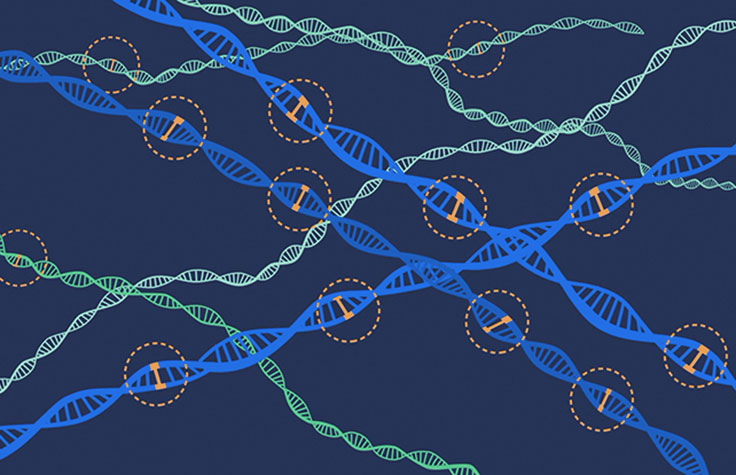
Developing Polygenic Risk Scores for Complex Diseases
Researchers at the University of Queensland perform large genome-wide association studies to identify disease-associated DNA risk loci and develop PRSs.
Read Interview
Establishing and Scaling an Efficient Genotyping Facility
Learn how Prenetics scaled up their genotyping laboratory to increase capacity and serve their growing customer base.
Read Interview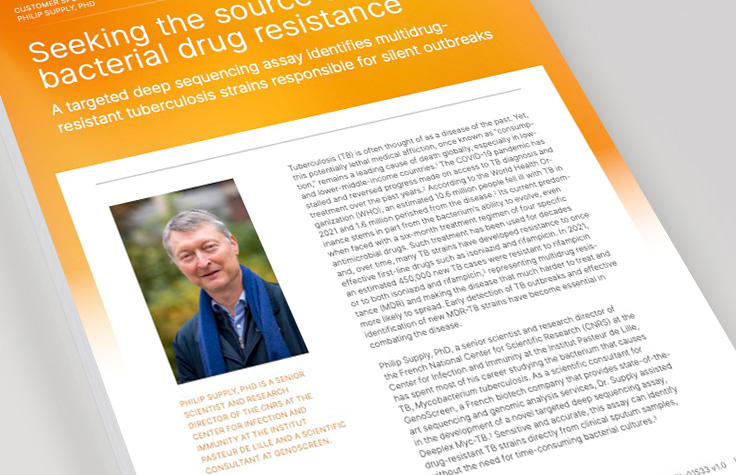
Seeking the Source of Tuberculosis Drug Resistance
A targeted deep sequencing assay includes targets for M. tuberculosis genotyping and identifies multidrug-resistant tuberculosis strains responsible for silent outbreaks.
Read Interview
Troubleshooting genotyping data
Hear from experts about quality control (QC) principles for Infinium array data. Topics include learning how to interpret key QC metrics using GenomeStudio software, identify common quality issues, and apply best practices for troubleshooting data analysis.
Watch troubleshooting webinarGenotyping FAQ
Related Content
Genome-Wide Association Studies

Scan entire genomes of large numbers of individuals quickly in order to uncover disease-associated genetic variants. Learn more about GWAS.
Pharmacogenomics

Study how variations in the human genome affect responses to medications. Learn more about pharmacogenomics.
Complex Disease Genomics

Find out more about gene target identification, complex disease research methods, and other topics. Learn more about complex disease research.
Polygenic Risk Scores

Explore how polygenic risk scores are developed, and find key considerations for your research. Learn more about polygenic risk scores.
Genetic and Rare Diseases

NGS technology is helping to drive breakthroughs in genetic disease by facilitating identification of disease-associated genetic variants. Learn more about genetic and rare diseases.
Cardiovascular Disease Genomics
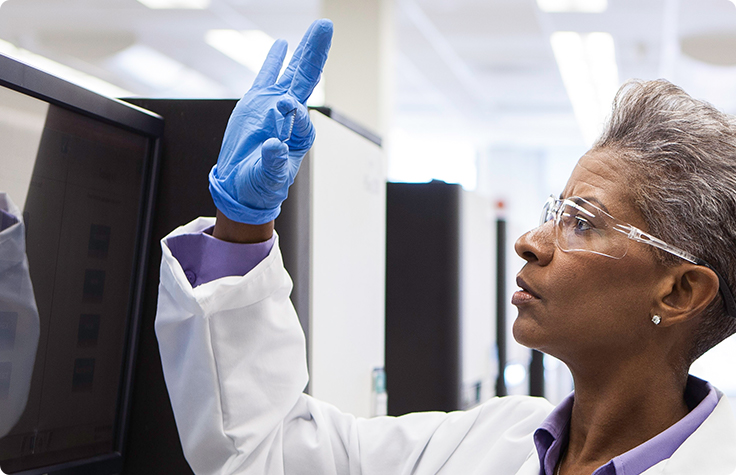
Cardiac gene panels using NGS can help to detect variants associated with cardiomyopathy and other heart diseases. Learn more about cardiovascular genomics.
Interested in receiving newsletters, case studies, and information on genomic analysis techniques? Enter your email address.
Additional Resources

Array and Library Prep Kit Selector
Easily identify the best array or sequencing library prep kit based on project type, starting material, and method.

Genomics Consortia
Explore consortium-built products that support high-throughput, multiplex studies of diverse populations and complex diseases.
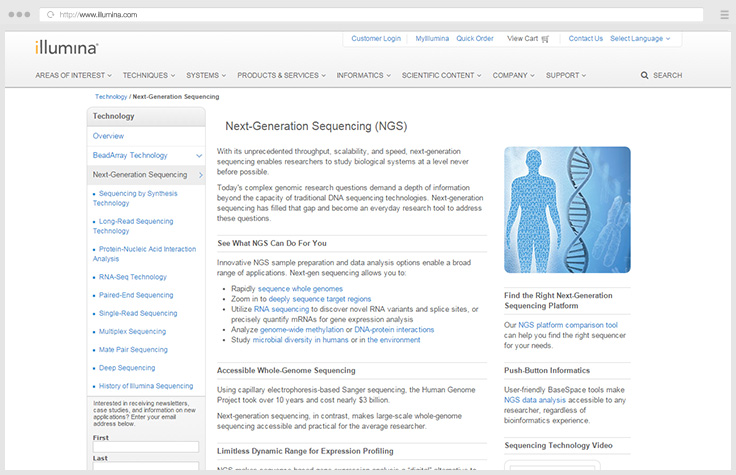
NGS Technology
With unprecedented throughput, scalability, and speed, NGS enables study of biological systems at a level never before possible.
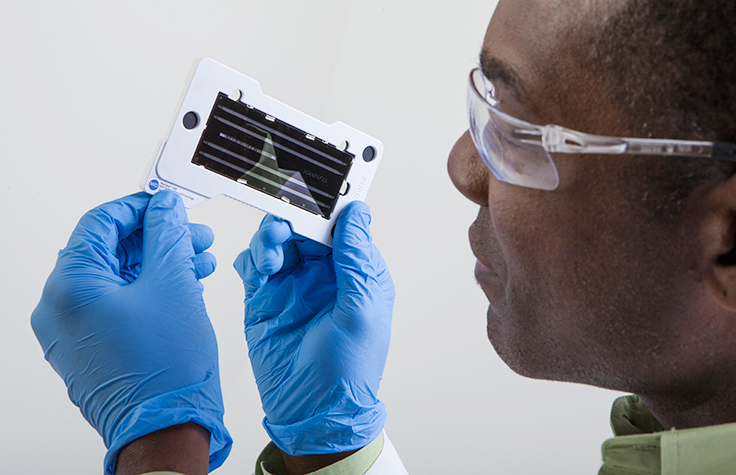
Precision Genomics
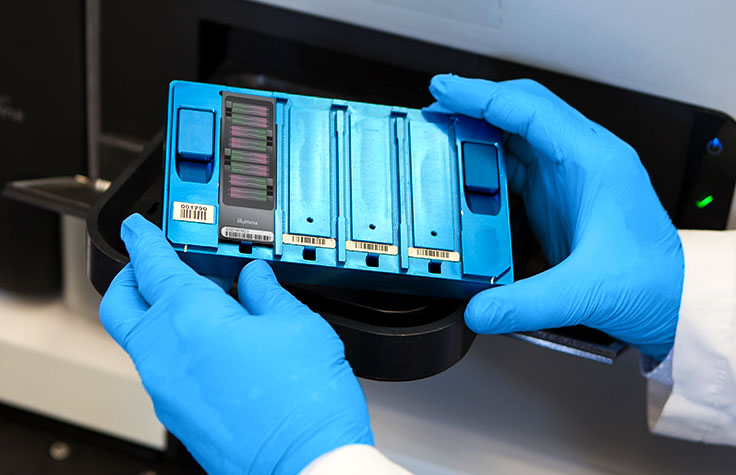
Microarray Technology
Find out how our high-density bead-based microarray technology delivers trusted quality and reproducible data for cost-effective genotyping.
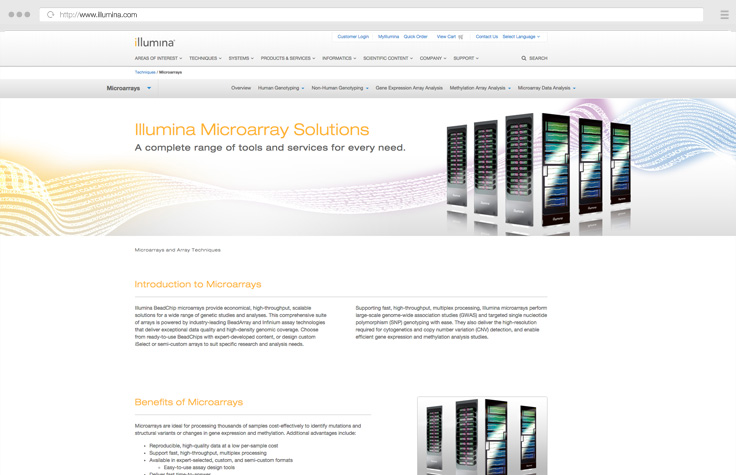
Microarray Solutions
Access a comprehensive range of array-based techniques and solutions for genotyping and epigenetics studies.
References
- PKockum I, Huang J, Stridh P. Overview of Genotyping Technologies and Methods. Curr Protoc. 2023;3(4):e727. doi:10.1002/cpz1.727.
- Craig J. Complex diseases: research and applications. Nature.com. nature.com/scitable/topicpage/complex-diseases-research-and-applications-748. Published 2008. Accessed September 9, 2025.